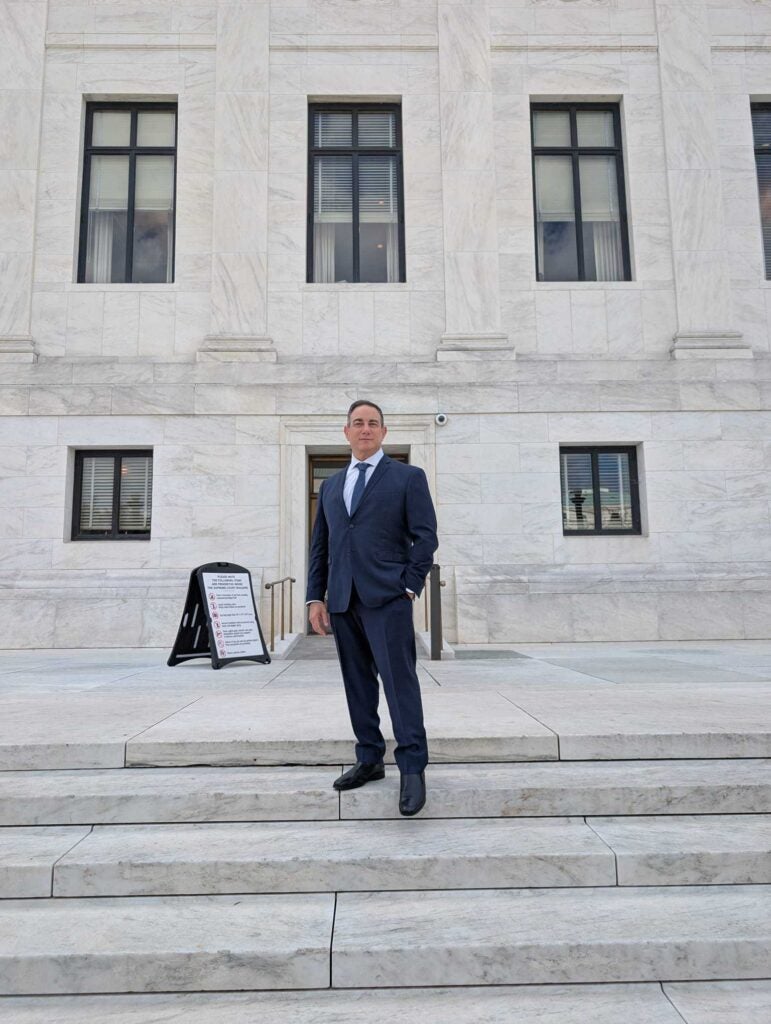A Georgetown University professor who was previously wrongfully incarcerated gained admission to litigate before the U.S. Supreme Court, the university announced Oct. 10.
Martin Tankleff, the Peter P. Mullen distinguished visiting professor, was wrongfully convicted of murdering his parents in 1990 and released in 2007 after serving nearly 18 years in prison. He later earned a law degree and currently practices in New York City, co-teaching a course in Georgetown’s Prisons and Justice Initiative (PJI).

Tankleff said he thinks that given his experience, he would be best suited to litigate cases relating to criminal justice reform.
“I think I would be one of the best lawyers to argue about prisoners’ rights, abuses of prisoners, wrongful convictions, denial of due process,” Tankleff told The Hoya. “I could also see that I could argue in a case where I feel prosecutors or police had wrongdoing and there’s no accountability.”
Tankleff said his application process was a particularly full-circle experience, as two attorneys who helped appeal and reverse his conviction were the lawyers who sponsored him for admission to the Supreme Court.
“It’s very rare for two attorneys to represent somebody — attorneys that have been doing litigation for 30, 40 years — and that they get to sponsor their former client, who is now a colleague, to practice before the U.S. Supreme Court,” Tankleff said.
Admission to the Supreme Court Bar requires at least three years of practice in a state’s highest court, good standing with no disciplinary issues and sponsorship by two lawyers already admitted to the Supreme Court Bar. Applications then must be reviewed and approved by the court before the applicant appears in front of the Supreme Court justices to propose a motion to be admitted. Tankleff said he also had to write a supplemental affidavit explaining his wrongful conviction.
In addition to his legal work, Tankleff co-teaches Georgetown’s “Making an Exoneree” course, an application-based government class where students investigate cases that were likely wrongfully decided and create a public documentary.
Tankleff said he hopes his accomplishments and experiences will inspire his students to overcome challenges.
“I think it should inspire people that you can overcome everything,” Tankleff said. “It’s the one thing that one of my lawyers said, ‘If Marty could achieve all of this in the short period of time he’s been out, imagine what he would’ve achieved had he not gone to prison.’”
Marc Howard, the founder of PJI who co-teaches the “Making an Exoneree” course with Tankleff, said Tankleff’s achievement is a testament to his perseverance.
“It’s a symbolic honor that is bestowed upon him,” Howard told The Hoya. “I believe he’s the second exoneree that has been admitted to the Supreme Court bar and that’s pretty extraordinary because the very system that falsely wrongly condemned him to prison has now actually admitted him to be able to argue cases in front of the highest court in the land.”
Howard, who was childhood friends with Tankleff and advocated for his release, added that while PJI did not have a direct role in Tankleff’s admission, the program supported Tankleff throughout the application process.
“We at the Prisons and Justice Initiative are very proud to be affiliated with Marty — to be a part of his professional journey, to be supportive of him through the ‘Making an Exoneree’ program and so much else of what we do at PJI,” Howard said. “He’s a valued member of our community and we’re really proud of him for this distinction.”
Keira Chang (CAS ’29), a student interested in pursuing law, said Tankleff’s story is both inspiring and grounding when thinking about future challenges.
“I take for granted the amount of advantages that I already have and his story simply reminds me to be grateful for my opportunities,” Chang wrote to The Hoya.
Tankleff said his journey from conviction to the Supreme Court Bar should demonstrate that justice is possible, remembering his neighbor in prison who hoped to move to the Upper West Side neighborhood of New York City and teach art, while Tankleff himself wished to become a lawyer.
“Lo and behold, my neighbor got a reversal,” Tankleff said. “He lives in the Upper West side and he teaches art. I got a reversal; I got out. I became a lawyer and through the ‘Making an Exoneree’ program, we’ve been instrumental in helping 13 people get out of prison with hopefully many more to come.”